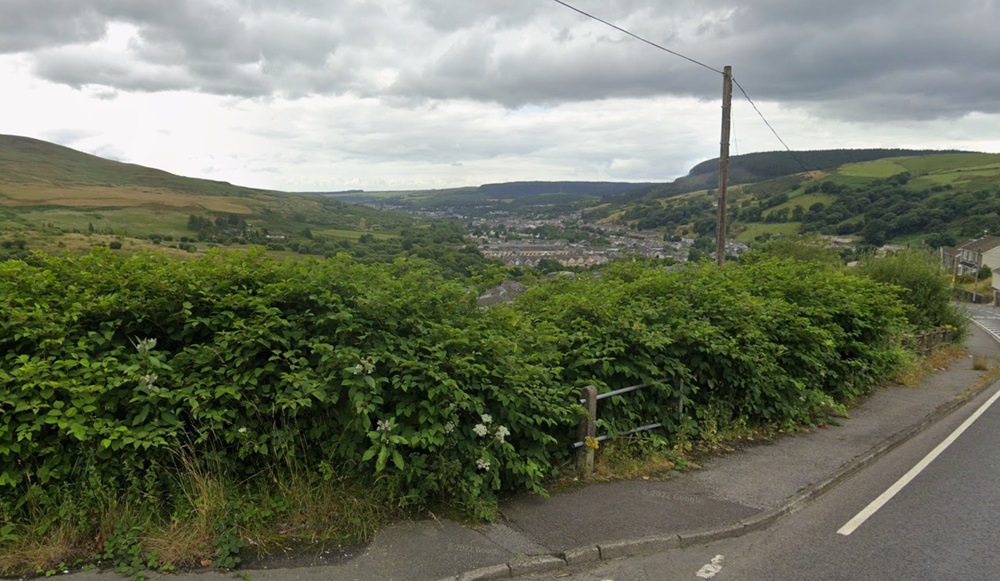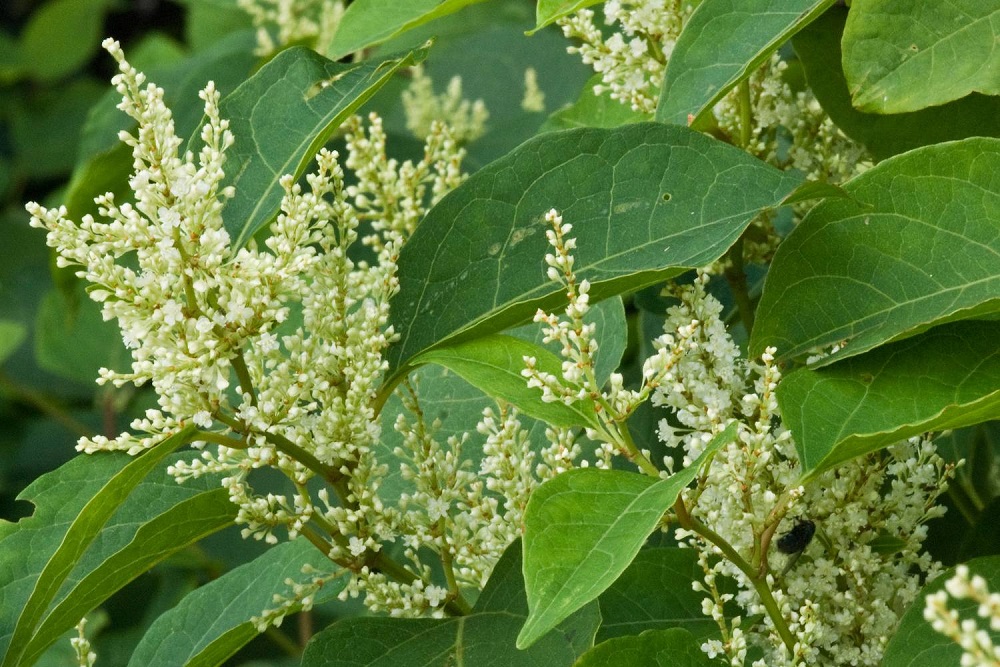 Japanese knotweed. Photo Google Maps
Japanese knotweed. Photo Google Maps
A Welsh Wildlife Trust is launching a pioneering trial of a new chemical-free method to eradicate Japanese knotweed, one of the UK’s most damaging invasive species.
North Wales Wildlife Trust’s trial, taking place at Stori Brymbo, Wrexham from July 14, 2025, marks the first use in Wales of the Roots Reset technique.
Wildlife Trusts in Wales are calling for the end or reduction of the use of pesticides, and as such, North Wales is leading the way with innovative management methods for managing Japanese knotweed, an invasive non-native species which is damaging to biodiversity, housing and infrastructure across the United Kingdom.
North Wales Wildlife Trust (NWWT) has initiated a new management approach for a Japanese knotweed eradication trial in Wales as part of the Wales Resilient Ecological Network Project (WaREN). WaREN supports organisations, Local Action Groups, and communities in their efforts to address invasive non-native species (INNS) across Wales.
The trial began at Stori Brymbo, Wrexham on July 14, 2025, and lasted for just five days, although the overall process will take 12 months to complete. A report will then be published and made available on the Trust’s website.

Threat
As invasive species rank among the top five threats to global biodiversity, finding an innovative, chemical-free approach enables NWWT to lead efforts in restoring nature. This new approach uses the Roots Reset method to control Japanese knotweed without pesticides or chemicals and promotes quicker natural regeneration and allows replanting to take place within 5 days.
The Roots Reset technique does not involve pesticides and has been demonstrated to eradicate Japanese knotweed within a year. Traditional methods using pesticides may take up to five years to achieve the same result. Roots Reset was previously deployed in the United Kingdom (Scotland), but this will be the first time the method is utilised in Wales.
This trial was developed following funding from Dŵr Cymru Welsh Water to discover innovative ways to manage invasive non-native species. NWWT consulted Soilwise about Roots Reset, a method designed to remove Japanese knotweed, while benefiting the environment. After the trial, NWWT will release a report comparing the effectiveness of the Roots Reset method with the traditional
method of foliar spraying, as well as outlining the costs and timeframes for each approach.
 Japanese Knotweed plant. Photo GBNNSS
Japanese Knotweed plant. Photo GBNNSS
Additionally, a validation report will be produced by Dr. Daniel Jones, a leading UK expert on Japanese knotweed.
The Roots Reset method was originally developed by the Dutch company Soilwise. This technique has been successfully implemented at over 325 sites across north-western Europe, achieving full elimination of Japanese knotweed in more than 95% of cases. Once the method is completed, native species can be planted in the treated area after just five days. This is a significant improvement compared to current best practices, which recommend waiting until the end of treatment—typically a minimum of five years—before planting. This delay is primarily due to concerns that soil disturbances could relocate rhizomes of any remaining Japanese knotweed.
If the trial of this method in north Wales proves successful, it will be validated by Dr. Daniel Jones, the UK lead on Japanese knotweed. Following validation, there is hope for broader implementation across the United Kingdom.

Benefits of using Roots Reset
• Proven complete control of Japanese knotweed in one treatment
• No use of pesticides or chemicals,
• Environmentally friendly,
• Recovery of soil health and biodiversity above and below ground
• Low cost compared to other methods
• Applicable both in-situ and on excavated soil in-depot
Frances. CEO of NWWT, said: “We at North Wales Wildlife Trust are always striving for new and innovative ways of helping nature and tackling Invasive Non-Native Species (INNS). Roots Reset enables us to be at the forefront of INNS management without the use of pesticides. Allowing nature to recover without pesticides enhances biodiversity and natural regeneration more efficiently than
conventional practices”
Matthijs Varekamp (Soilwise Japanese knotweed specialist, shared: “The solution is already in the soil. We developed a proprietary method to deploy microorganisms already present in the soil against invasive species.
“To do so, the soil is first enriched with a 100% plant-based granulate called CleaRoot, after which the soil is sealed oxygen-tight. CleaRoot feeds specific microbes already present in the soil. As a result, these grow rapidly and consume all available oxygen in the soil.
“In the absence of oxygen, further fermentation of the knotweed’s roots takes place. As a rule, 100% of knotweed is killed in one treatment, and that without the use of chemicals or excavating the soil. We apply Roots Reset in close collaboration with contractors throughout North-West Europe.
“We look forward to deploying Roots Reset in Wales for the first time and introducing people in Wales and the surrounding areas to our innovative and effective control technique.”
With invasive species being one of the top five threats to biodiversity across the planet, finding an innovative way of tackling this issue without pesticides or chemicals allows NWWT to lead the way for nature recovery.
Support our Nation today
For the price of a cup of coffee a month you can help us create an
independent, not-for-profit, national news service for the people of Wales, by
the people of Wales.

AloJapan.com